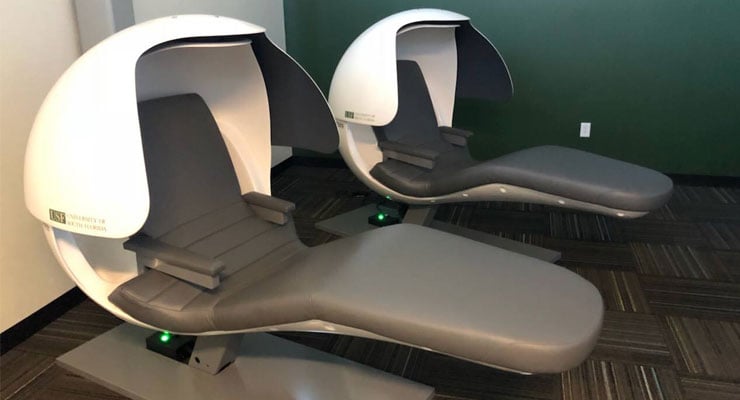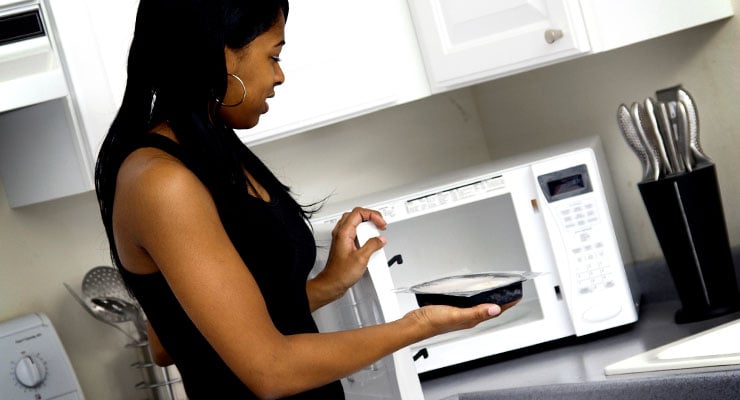The Importance of Sleep for College Students
By Joe Emerson | Last Updated: Oct 29, 2025

College is a matter of dreams and the academic and career aspirations born of those dreams. Sleep problems can turn those dreams into nightmares, causing physical and emotional problems that spiral out of control and land GPAs and hopes of graduating in the trash bin. That’s why the importance of sleep for college students can’t be overstated.
Sleep Deprivation and College Students
Sleep deprivation happens when you’re either not getting enough sleep, or your sleep is poor quality, according to Johns Hopkins. How much sleep do you need? For young people, eight hours is thought to be the necessary daily minimum. But most college students don’t log nearly that much, leading to problems in their daily lives.
A National Institutes of Health report addresses the prevalence among college students of what it labels daytime sleepiness, “defined as the inability or difficulty in maintaining alertness during the major wake period of the day, resulting in unintended lapses into drowsiness or sleep.” The NIH report says:
- More than 70 percent of college students say they get less than eight hours of sleep a day.
- Sixty percent of college students say they are “dragging, tired, or sleepy” at least three days a week.
- More than 80 percent of college students say loss of sleep negatively affects their academic performance.
- College students rank sleep problems as the No. 2 cause of difficulties with academic performance. Stress is No. 1.

Causes and Effects of College Students Losing Sleep
Quite literally, sleep deprivation is a major problem for college students. The previously cited NIH study does a deep dive on the reasons why college students lose too much sleep, enough to result in sleep deprivation or daytime sleepiness. Beyond going to sleep too late and/or getting up too early, primary causes of sleep problems fall under these categories:
Inadequate Sleep Hygiene
Sleep hygiene is about behavior that hurts or helps a student get enough quality sleep. Going to bed and getting up at the same time every day is helpful. So is keeping your sleep area cool, dark, and quiet.
On the other hand, aspects of college life that negatively affect sleep hygiene include variable class schedules and sleeping patterns, late-night socializing, and early morning obligations.
Alcohol
Almost 12 percent of surveyed students who drink say they use alcohol to help them sleep. It does help them get to sleep, but it fragments the second half of the downtime. Fragmentation means that your brain has many brief “wake-up” periods throughout the night, keeping you in a lighter, less restorative form of sleep.
Alcohol can also increase the risk for obstructive sleep apnea, a sleep disorder.
Caffeine and Energy Drinks
The effects of caffeine can last for more than seven hours, making it harder to fall asleep and stay asleep. Caffeine can be found in many drinks, such as coffee, certain teas, and some sodas.
Caffeine is also a primary ingredient of energy drinks. NIH notes that the use of energy drinks “is associated with higher use of alcohol and possibly other drugs, including stimulants.”
Technology
The NIH reports that:
- Having a cell phone in your sleeping space can increase daytime sleepiness, reduce the quality of sleep, make it harder to fall asleep and stay asleep, and result in you waking up throughout the night.
- Using a computer before bedtime makes it more likely you will experience drowsy driving, daytime sleepiness, and less restful sleep.
- Playing video games before bedtime makes it harder to fall asleep.
More recent studies suggest phone use itself is not necessarily the problem, but rather how we use it. Dim your screen display and do soothing activities (like reading on your tablet) rather than online shopping, exciting video games, or social media.
Sleep Disorders
If you have trouble sleeping, drop by your campus health center to rule out sleep disorders. Sleep disorders include obstructive sleep apnea, insomnia, restless legs syndrome, circadian rhythm sleep disorders, and hypersomnia.
The All-Nighter
The all-nighter isn’t a category in the NIH string of causes of sleep deprivation, but the typically forced marathon of studying is addressed, and it appears to have a real downside. Testing indicates that “all-night study sessions are the wrong plan for improved grades and learning.” When you study all night, your body and mind don’t get to recharge. This makes it harder for your brain to recall the facts you studied and makes it harder for you to stay focused during your test.
Plan ahead so you can study the material multiple times in manageable sections.
Symptoms of Sleep Deprivation
You’re slogging through another semester with too much to do and too little sleep. Aside from constant yawning and sleepiness, fatigue, and irritability, the signs of sleep deprivation can include:
- Memory issues (that obviously affect learning)
- Mood swings
- Weakened immune system
- Higher risk of diabetes
- Decreased balance
- Increased risk of high blood pressure and heart disease
- Increased hunger and weight gain
- Greater risk of accidents
- Trouble concentrating
- Increased risk of mental illness
Common Sense Solutions to College Student Sleep Woes
Beyond the professional assistance available to people with mental and physical problems that affect sleep, there are simple steps you can take to overcome obstacles in getting adequate restorative slumber:
- Build decompression time into your schedule. Have downtime before bedtime that involves relaxing activities (not studying).
- Stay away from caffeine and other stimulants for at least six hours before bedtime.
- Make your bedroom a safe space for sleeping. Dim the lights two hours before bed and keep your room cool and quiet. If you have a roommate, using ear plugs, an eye cover, and a white noise machine can help.
- Avoid stimulating phone use right before bed. Watching a boring nature documentary might help you get to sleep. Scrolling on social media won’t. Make sure to use the nighttime setting to dim your phone’s light, too.
- Avoid napping during the day. If you must nap, at least do it before 3 p.m.
- Skip the booze before bed.
- Try to follow a regular bedtime schedule, and follow it on weekends, too.
- Get sunshine every morning, and exercise during the day. Just don’t exercise right before bedtime.
- Consider trying magnesium supplements to help you fall asleep. Ask your campus health center or your local pharmacist if you have any questions about side effects or interactions with current medications.
- Give yourself enough “sleep opportunity time.” Don’t hop into bed at midnight and expect to clock a full eight hours by 8 a.m. Instead, allow yourself a buffer window to fall asleep (and remember that six hours of sleep is not enough). The Sleep Foundation has a calculator that can help you determine when to go to bed.
Use Your School’s Resources
Emotional well-being is a foundation for good sleep habits, and resources for achieving it are a staple of campus life at USF. Drop by USF’s Health and Wellness Center for individualized support to help you feel better during the day and sleep better at night.
Ready to learn more? Check out our 7 tips on getting better sleep as a college student.


